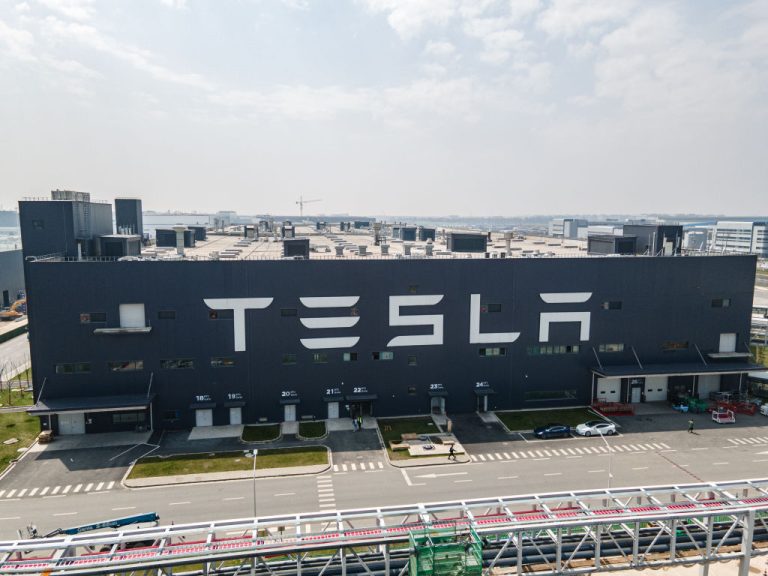Executives of major U.S. companies have stressed their commitment to the Chinese market despite the worsening situation under Communist Party rule and heightened geopolitical tensions.
A recent story by Beijing’s state broadcaster China Global Television Network (CGTN) touted the business leaders’ attitude as a sign that it was undesirable for the U.S. to decouple” from the Chinese economy.
The mouthpiece cited Elon Musk, CEO of luxury electric automaker Tesla, as having described the American and Chinese economies as “conjoined twins”
Tesla is prominently placed in China with its Shanghai Giga factory, which produced 700,000 units of its Model 3 car in 2020, before suffering severe production setbacks due to the Chinese Communist Party’s draconian “zero-COVID” lockdowns in the city.
Another major player in the global market is coffee giant Starbucks, whose new global CEO, Laxman Narasimhan, has announced he is going all out for China and plans to open 9,000 stores by 2025, making China the go-to market for the bean roaster.
Success
You are now signed up for our newsletter
Success
Check your email to complete sign up
READ MORE
- Debate Rages Whether to Allow Landmark Science and Technology Agreement Between China and US to Expire
- Nike Turns Blind Eye to Genocide: ‘Business in China is Aligned to Our Values’
- Spreading Power Crisis in China, Foreign Businesses Grow Wary
- Report: How Amazon Cozied Up to Beijing And Spread Propaganda to Grow Its China Business
A similar situation can be seen with General Motors, whose CEO Mary Barra also visited China this year; officials in Shanghai persuaded the company to increase investment in the city, including research and development.
CGTN claimed that the executives’ attitude shows the enduring attractiveness of China based on its “sheer size” and “manufacturing capabilities.”
The network observed the significance of GM’s joint venture as contributing to the “hugely successful” Hongguang MINIEV, a new energy vehicle (NEV) brand that became the best-selling model in China last year.
In order to do business in China, international companies are required to partner with Chinese firms. However, the Chinese Communist Party (CCP) does not enforce its copyright or intellectual property laws properly, instead encouraging industrial espionage and coercive tech transfers.
‘No judgment whether it is right or wrong’
Footwear giant Nike previously had to backtrack on its critical statements in 2021 about the possibility that some of its raw materials might have been supplied under forced labor by Uyghurs in Xinjiang.
Nike CEO Jack Donahoe declared that his company’s processes are in line with Communist China’s values, including throughout the supply chain. He stressed that China is a “very important” market for the shoemaker, and he highlighted the brand’s four-decade presence in the country with more than 7,000 stores.
Online retailer Amazon also demonstrated its extraordinary leniency when it comes to adhering to ethical standards of business.
In 2018, Amazon described some of the “Core Issues” it faced in China in an internal briefing document. “Ideological control and propaganda is the core of the toolkit for the communist party to achieve and maintain its success… We are not making a judgment on whether it is right or wrong,” a document seen by Reuters stated.
Still, Amazon raised eyebrows even among China enthusiasts when it offered a series of Xi Jinping’s speeches and writings on its Chinese website.
Ratings and comments on the Chinese leader’s books were disabled.
READ MORE
In addition to Tesla, Starbucks, and General Motors, other companies have praised working relations with China, such as Apple, which profits from the country being a critical manufacturing hub for Apple’s hardware, and a significant sales market, the CGTN piece wrote.
“We could not be more excited,” Apple’s CEO Tim Cook stated during a visit to the China Development Forum in Beijing in March. “China and Apple grew together…and so this has been a symbiotic kind of relationship,” Cook stated.
Reuters contributed to this article.














